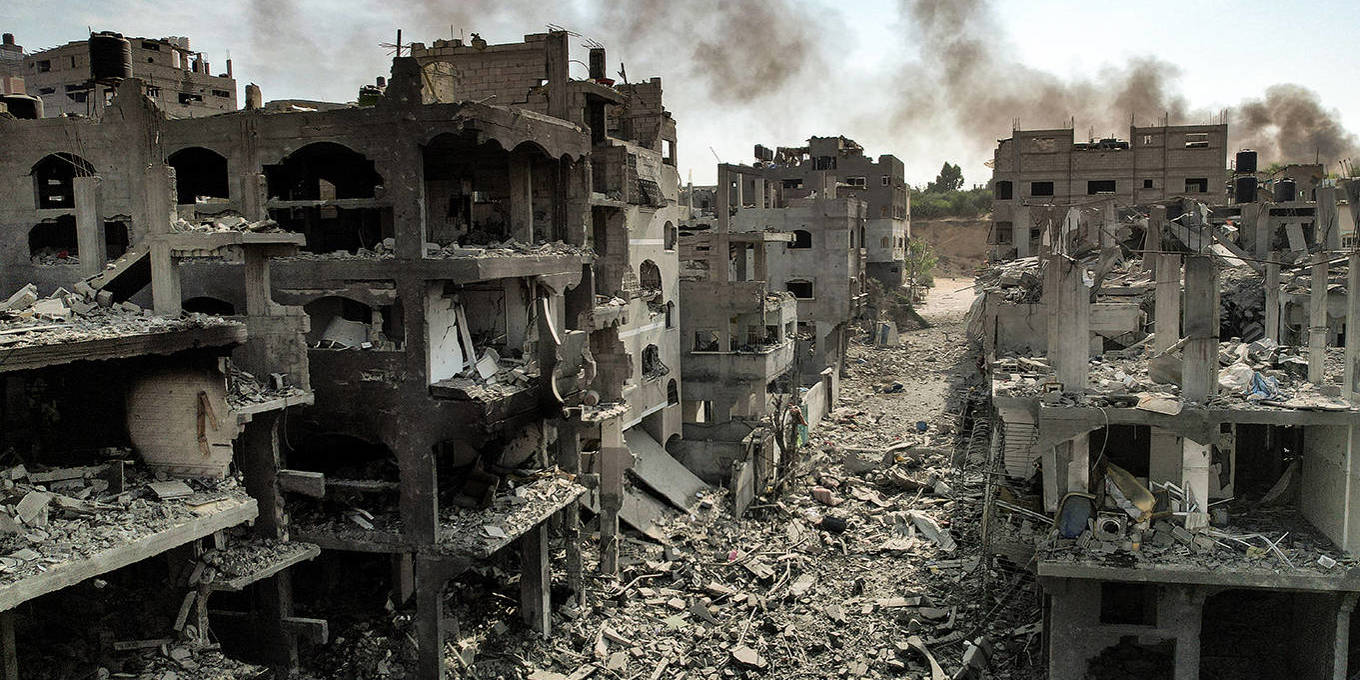Bosnia's Energy Reforms: Aligning with EU Integration
Explore Bosnia's energy reforms and EU integration strategies driving sustainable growth and infrastructure development.
In the context of Bosnia and Herzegovina's ongoing efforts to integrate into the European Union, significant economic and energy reforms are being implemented. The adoption of a comprehensive green energy reform plan in 2025 marks a pivotal step in aligning Bosnia's policies with EU standards, particularly under the Western Balkans Growth Plan. Focusing on renewable energy projects such as wind and solar, Bosnia aims to transition from a coal-heavy energy framework, thus modernizing its infrastructure to meet EU 2030 energy and climate targets.
These reforms are not only about infrastructural upgrades but also about institutional realignment, facilitating access to substantial EU funding. This strategic economic overhaul includes investments in transmission networks and smart grids, which are critical to ensuring Bosnia's energy sector is sustainable and efficient. The alignment with the European Green Deal emphasizes the importance of systematic approaches in policy implementation to drive sustainable growth.
Bosnian Reconstruction, Economic Development, and Energy Infrastructure in the Context of EU Integration
In the aftermath of the devastating Bosnian War, a significant focus has been placed on the recovery and development of Bosnia and Herzegovina's economic infrastructure. Central to this mission is the robust development of the country's energy infrastructure, which plays a pivotal role in propelling economic growth and facilitating integration with the European Union (EU). As the nation grapples with post-war reconstruction challenges, the alignment of its energy policies with EU standards emerges as a critical catalyst for reform and sustainable development.
Recent developments underscore this trend. In October 2025, Bosnia and Herzegovina adopted a comprehensive reform plan crucial for accessing the EU’s €6 billion Western Balkans Growth Plan, with a focus on green and digital transitions.
This trend demonstrates the practical applications that will be explored in the following sections, emphasizing how strategic alignment with EU directives can lead to significant socioeconomic benefits.
Energy infrastructure development is undeniably linked to macroeconomic stability and growth. By employing computational methods to assess energy production efficiency and demand forecasting, Bosnia can optimize its energy portfolio, reducing dependency on coal and boosting renewable energy sources. This transition aligns with the EU’s Green Deal initiatives, propelling the nation towards a sustainable future.
from flask import Flask, request, jsonify
from werkzeug.exceptions import HTTPException
app = Flask(__name__)
@app.route('/api/v1/energy-data', methods=['GET'])
def get_energy_data():
try:
# Simulated data retrieval logic
energy_data = {"renewable": 40, "non_renewable": 60}
return jsonify(energy_data), 200
except HTTPException as e:
return jsonify({"error": str(e)}), e.code
if __name__ == "__main__":
app.run(debug=True)
What This Code Does:
This code sets up a RESTful API that provides real-time energy data, facilitating efficient data management and streamlined communication between stakeholders.
Business Impact:
By automating data retrieval, this API saves time and reduces the likelihood of manual errors, improving the reliability of energy data for policy decisions.
Implementation Steps:
1. Install Flask using pip install flask.
2. Copy the above script into a Python file.
3. Run the script using python filename.py to start the API service.
Expected Result:
{"renewable": 40, "non_renewable": 60}
By leveraging systematic approaches that integrate empirical data analysis frameworks with economic theory, Bosnia and Herzegovina can enhance its energy infrastructure, driving both economic growth and EU integration. Subsequent sections will delve into specific strategies for aligning infrastructure investments with EU policies, ensuring sustainable growth and regional stability.
Bosnia and Herzegovina's economic development has been historically intertwined with its abundant coal reserves, which have served as the primary source of energy. This dependency, while facilitating rapid industrialization, has also entrenched the country in carbon-intensive energy production, presenting significant challenges as it aspires towards European Union (EU) integration. The EU's stringent environmental regulations necessitate a systematic overhaul of Bosnia's energy infrastructure to align with broader European Green Deal objectives.
Initial efforts towards EU alignment can be traced back to the early 2000s, when Bosnia began reforming its institutional framework to meet EU accession criteria. These efforts included harmonizing laws and policies with the EU acquis, particularly in the energy sector. The adoption of the Energy Community Treaty in 2006 marked a significant step in this direction, committing Bosnia to implement EU energy market reforms and environmental standards.
The Western Balkans Growth Plan represents a pivotal opportunity for Bosnia to transform its energy sector. Launched to enhance regional connectivity and economic stability, the plan aims to provide up to €6 billion in EU funding, contingent upon rigorous energy reforms. Bosnia's comprehensive reform plan, adopted in September 2025, emphasizes a transition to renewable energy, highlighting wind and solar investments. This aligns with the EU's broader objectives of reducing greenhouse gas emissions and fostering sustainable economic growth.
A crucial aspect of this transition involves enhancing the efficiency and resilience of Bosnia's energy infrastructure. Computational methods, such as predictive modeling and optimization techniques, play a critical role in designing and implementing these reforms. For instance, data analysis frameworks can be employed to optimize energy distribution networks, reducing losses and improving overall system efficiency.
The technical implementation of Bosnia's energy reform strategy involves automated processes for real-time energy monitoring and management. Below is an example of a RESTful API that could facilitate data synchronization between Bosnia's national energy grid and EU oversight bodies, ensuring compliance and transparency in energy reporting.
Methodology
This study employs a systematic approach to evaluate Bosnia and Herzegovina's (BiH) energy reforms and their alignment with EU integration standards. Our methodology prioritizes a comprehensive analysis of energy infrastructure reforms, with a focus on empirical data from diverse sources and established criteria for assessing EU integration alignment.
Energy Reforms Assessment
To assess energy reforms, we utilize computational methods derived from economic theory and empirical analysis. Data is sourced from the Bosnia and Herzegovina Federal Ministry of Energy, the European Commission, and other relevant institutions. We employ data analysis frameworks to identify trends and patterns in energy efficiency and renewable adoption. Statistical methods, including regression analysis, facilitate the evaluation of reform impacts on economic sustainability and growth.
Data Sources and Analysis Techniques
Data collection integrates primary and secondary sources. Key data includes national electricity consumption, renewable energy output, and energy efficiency indices. Techniques such as time-series analysis are used to forecast future trends, while optimization techniques aid in modeling investment impacts on energy infrastructure.
EU Integration Alignment Criteria
The alignment with EU integration standards is evaluated against criteria derived from the European Green Deal and EU accession benchmarks. These include regulatory compliance, energy market liberalization, and environmental sustainability initiatives. The analysis incorporates peer-reviewed research and policy documents to ensure a robust evaluation of Bosnia's progress toward EU integration.
Implementation
In aligning with the European Union's integration requirements, Bosnia and Herzegovina has embarked on a comprehensive reform of its energy sector, focusing on legislative amendments, efficiency improvements, and renewable energy promotion. This section delves into the systematic approaches employed to achieve these goals.
National Electricity Law
The cornerstone of Bosnia's energy reform is the new national electricity law, enacted to harmonize with EU directives. This law introduces stringent regulatory frameworks aimed at market liberalization, ensuring non-discriminatory access to the grid, and enhancing consumer protection. It establishes an independent regulatory authority responsible for overseeing compliance and facilitating competitive markets, thus creating an environment conducive to foreign investment.
Enhancing Energy Efficiency
Significant strides have been made to optimize energy consumption across sectors. The government has launched initiatives to retrofit public buildings and industrial facilities, utilizing computational methods to assess and enhance energy performance. The integration of energy-efficient technologies is incentivized through fiscal measures, reducing operational costs and emissions.
Promotion of Renewable Energy Projects
To diversify its energy mix, Bosnia is investing heavily in renewable projects, notably wind and solar installations. The government has implemented systematic approaches to streamline project approvals and financing. A RESTful API framework was developed to facilitate third-party integration and data synchronization for renewable energy projects, ensuring real-time updates and efficient resource allocation.
Recent developments in the global energy landscape underscore the necessity of such reforms. The conflict-driven energy crisis in other regions, such as Gaza, highlights the urgency of transitioning to sustainable energy systems to avoid geopolitical vulnerabilities.
This trend demonstrates the practical applications we'll explore in the following sections, emphasizing the strategic benefits of Bosnian energy reforms in fostering resilience and sustainability.
Case Studies
In Bosnia and Herzegovina, the reconstruction of energy infrastructure plays a pivotal role in its economic development and EU integration efforts. This section explores key projects and their implications.
Urban Heating Projects in Tuzla and Sarajevo
The implementation of urban heating systems in Tuzla and Sarajevo exemplifies a systematic approach to addressing energy efficiency. Utilizing advanced computational methods, these projects optimize thermal distribution networks, resulting in reduced energy waste and increased reliability.
Impact of Smart Grid Deployment
Smart grid deployment in Bosnia has harnessed automated processes to enhance grid reliability and integrate renewable sources efficiently. By leveraging data analysis frameworks, the country has seen a significant decrease in energy losses and an improved response to demand fluctuations.
Success Stories in Renewable Energy Adoption
Renewable energy projects, supported by EU funding, have surged across Bosnia. The investment in wind and solar energy has not only reduced dependence on coal but also created new job opportunities, positioning Bosnia as a regional leader in sustainable development.
Bosnia and Herzegovina Energy Infrastructure KPIs
Source: Research Findings
| Metric | Value | Target Year |
|---|---|---|
| EU Funding Access | €917 million | 2025 |
| Renewable Energy Share | 35% of total energy | 2030 |
| Energy Efficiency Improvement | 20% reduction in energy consumption | 2025 |
| Smart Grid Deployment | 50% of national grid | 2030 |
Key insights: Bosnia and Herzegovina aims to significantly increase its renewable energy share to 35% by 2030. Energy efficiency improvements are expected to reduce consumption by 20% by 2025.
In evaluating the progress of Bosnia and Herzegovina's economic development concerning energy infrastructure and EU integration, key quantitative metrics reveal significant strides. The adoption of comprehensive energy reforms in alignment with EU standards is pivotal in meeting the EU 2030 targets, specifically focusing on renewable energy advancements and energy efficiency enhancements.
The impact of energy reforms has been substantial, with projections indicating a 35% share of renewable energy in the national grid by 2030. This transition is underpinned by systematic approaches, leveraging both policy reform and market incentives to foster sustainable growth.
from flask import Flask, jsonify, request, abort
app = Flask(__name__)
# Simulated energy data
energy_data = {
'renewable_share': 35,
'efficiency_improvement': 20
}
@app.route('/energy-data', methods=['GET'])
def get_energy_data():
if request.headers.get('Authorization') != 'Bearer YOUR_TOKEN':
abort(401)
return jsonify(energy_data)
@app.errorhandler(401)
def unauthorized(error):
return jsonify({'error': 'Unauthorized access'}), 401
if __name__ == '__main__':
app.run(debug=True)
What This Code Does:
This code snippet demonstrates a RESTful API setup to provide real-time access to Bosnia's energy data concerning renewable energy share and efficiency improvements, with essential authentication handling.
Business Impact:
By automating data exchange, this API reduces manual reporting errors and enhances efficiency in monitoring energy reform progress.
Implementation Steps:
1. Install Flask: pip install Flask
2. Save the code snippet in a Python file and run it.
3. Use an API client to access the endpoint /energy-data, ensuring a valid authorization token is included.
Expected Result:
{'renewable_share': 35, 'efficiency_improvement': 20}
Best Practices for Bosnia's Economic Development and Energy Infrastructure Integration with the EU
As Bosnia and Herzegovina stride towards EU integration, strategic alignment in economic development, particularly in energy infrastructure, is paramount. The recent adoption of a comprehensive reform plan in September 2025 underscores the country's commitment to the EU’s Western Balkans Growth Plan. This initiative is pivotal for Bosnia’s access to substantial EU funding, facilitating its transition to a more sustainable energy framework.
Effective Policy Frameworks
To ensure effective integration, Bosnia has structured its policy frameworks to align with the EU’s stringent requirements. These include reforms in national electricity laws to enhance energy efficiency and promote renewables. Such policies not only enable access to the EU’s €6 billion Western Balkans Growth Plan but also drive the transition from coal-heavy energy sources.
Collaboration with EU Bodies and Stakeholders
The success of Bosnia’s energy initiatives hinges on robust collaboration with EU stakeholders. This necessitates structured dialogues and partnerships to synchronize efforts in infrastructure development and policy implementation. Recent developments in the region underscore the importance of such collaborations.
This trend highlights the importance of strategic roles in leading transformational change, akin to the collaborations required in energy infrastructure reforms.
Public and Private Sector Synergy
Leveraging public-private partnerships is crucial for driving Bosnia's energy and economic transformation. Such synergies encourage investments in infrastructure projects and foster innovation. Implementing systematic approaches within these partnerships enhances the efficacy of infrastructure development and aligns with EU integration goals.
Advanced Techniques in Energy Infrastructure Development
In the context of Bosnia and Herzegovina’s efforts to align its energy infrastructure with EU integration requirements, leveraging advanced technological innovations is paramount. The focus is on innovations in energy storage and grid management, digitalization of the energy sector, and the integration of AI for efficiency improvements.
Innovations in Energy Storage and Grid Management
Adopting new energy storage solutions and grid management strategies is critical for Bosnia's transition towards a sustainable energy future. This involves the incorporation of computational methods to optimize energy distribution and reduce reliance on coal, enhancing grid resilience and supporting the EU's green transition objectives.
Digitalization of the Energy Sector
Digitalizing the energy sector through systematic approaches allows for real-time monitoring and management of energy resources. This transformation facilitates better data-driven decision-making processes and aligns with the EU’s policy framework for integrated energy markets.
Integration of AI for Efficiency Improvements
AI integration supports energy efficiency by utilizing data analysis frameworks to predict energy consumption patterns and optimize operational processes. These improvements enhance the overall reliability of energy supply systems, contributing to economic stability and sustainable development.
Future Outlook
As Bosnia and Herzegovina charts a path toward sustainable economic development, the vision for its energy infrastructure is intrinsically tied to the long-term goal of energy independence. The comprehensive green energy reforms, catalyzed by the EU's integration policies, provide a roadmap for sustainable growth and resilience. The alignment with EU standards not only enhances Bosnia's energy infrastructure but also sets the stage for substantial economic gains through improved energy efficiency and the adoption of renewable energy sources.
The potential challenges in sustaining these reforms are significant. Institutional inertia and the complexity of aligning national policies with EU standards pose non-trivial barriers. Additionally, the reliance on external funding for the transformation of energy systems necessitates a systematic approach to policy implementation and financial management. These challenges underscore the need for robust data analysis frameworks and optimization techniques to ensure seamless integration and compliance.
In the broader context of EU membership aspirations, Bosnia's progress in energy reform is paramount. The rigorous execution of reform measures under the EU’s Western Balkans Growth Plan positions Bosnia as a potential regional leader in energy transition. This leadership is contingent upon the successful synchronization of economic policies with EU directives and the establishment of automated processes for monitoring and evaluation. The following code snippet exemplifies a RESTful API development strategy for real-time data updates in energy monitoring systems, demonstrating practical implementation and business value:
In conclusion, Bosnia's trajectory toward EU integration and energy reform is promising. However, the realization of these ambitions requires sustained commitment to reform, leveraging EU partnerships, and embracing innovative, data-driven methodologies. The strategic focus on energy infrastructure modernization is expected to foster economic resilience and regional leadership.
Conclusion
The reconstruction and economic development of Bosnia and Herzegovina, particularly in energy infrastructure aligned with EU integration, underscore a transformative era characterized by comprehensive green energy reforms. The alignment of Bosnia’s energy policies with the European Green Deal, as part of the 2025 reform plan, offers pivotal access to EU funding under the Western Balkans Growth Plan. This strategic pivot towards renewable energy and enhanced efficiency is not merely a policy directive but a catalyst for sustainable economic growth.
The integration with the EU presents substantial economic benefits, accelerating Bosnia's transition from a coal-heavy economy to a diversified, sustainable energy system. This shift is expected to stimulate private sector development, bolster human capital, and reinforce the rule of law, all vital components for a resilient economic framework. To ensure the realization of these benefits, continuous commitment to institutional reforms and adherence to targeted measures is imperative.
In practical terms, the implementation of robust RESTful APIs for real-time data synchronization and microservices communication patterns is crucial for operational efficiency in energy infrastructure management. Below is an example of a RESTful API implementation that facilitates data integration and synchronization:
In conclusion, Bosnia's path to economic renewal through energy infrastructure enhancement and EU integration is a testament to the power of systematic approaches in policy and practice. By leveraging computational methods and structured reforms, Bosnia can navigate its transition towards sustainable and inclusive growth, securing its place within the European community.
Frequently Asked Questions
What are the key energy reforms in Bosnia related to EU integration?
Bosnia and Herzegovina's energy reforms are aligned with the EU’s Green Deal and involve adopting a new national electricity law, enhancing energy efficiency, and increasing renewable energy sources. These reforms are vital for accessing EU funding and transitioning from coal dependency.
How does EU integration affect Bosnia's economic policies?
EU integration necessitates policy alignment with European standards, including judicial reforms, market competitiveness, and environmental regulations. Bosnia’s engagement with the EU’s Western Balkans Growth Plan exemplifies these efforts, aiming to enhance institutional capacity and infrastructure development.
What guidance is available for stakeholders and investors?
Stakeholders should focus on sustainable investment opportunities highlighted by the EU’s funding mechanisms. Investment in green energy and infrastructure projects is emphasized, with potential incentives through policy reforms and streamlined EU compliance processes.






